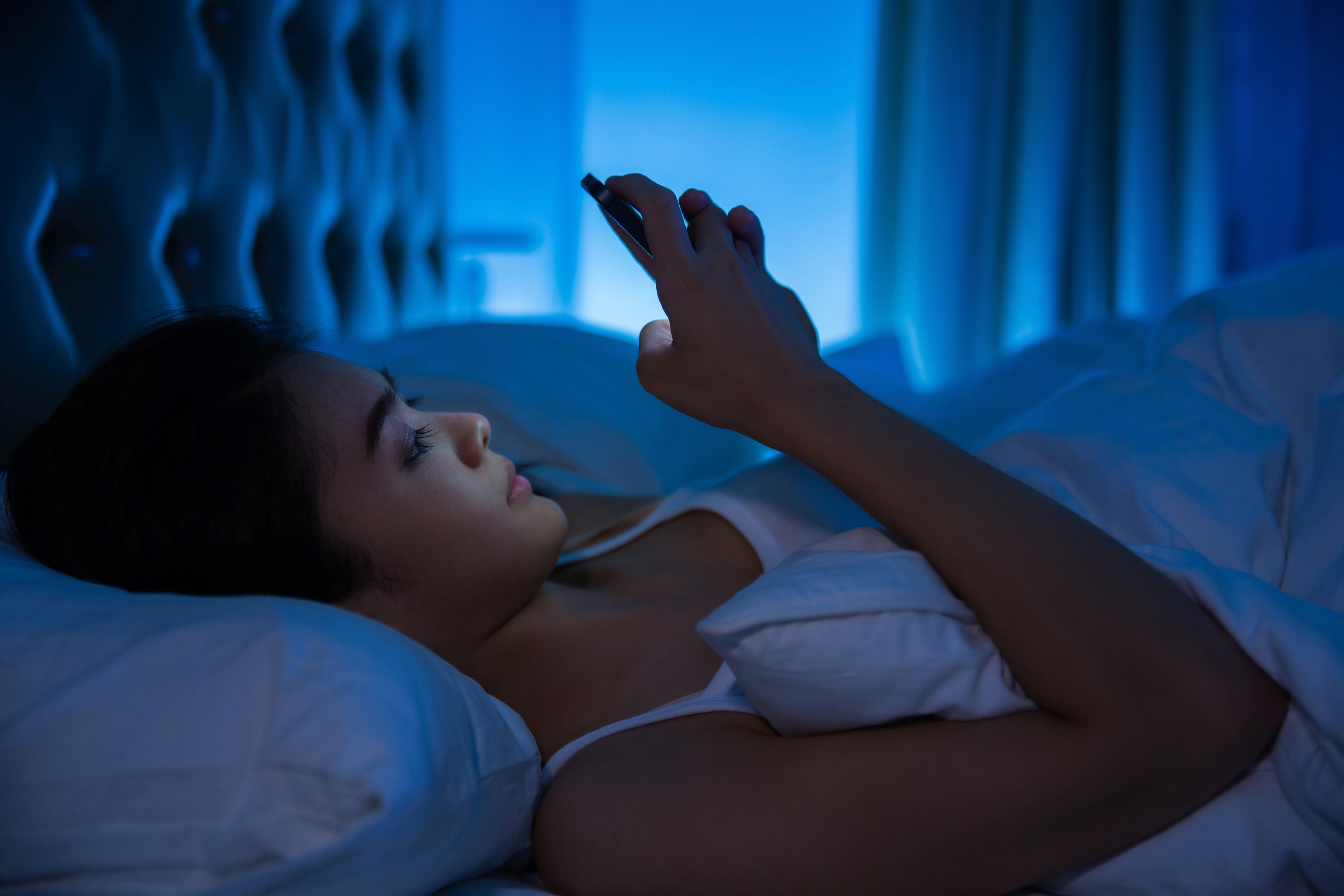I’ve ruined my sleep with ‘revenge bedtime procrastination’ in lockdown. Why is this happening?
Despite the fact that I know I will be woken by my two young children at 6am; in the glorious witching hours after midnight, I simply don’t care


The year of isolation we’ve all experienced since the pandemic began has been accompanied, for me, by a sudden, sharp shock of insomnia. The thing is: I’m not simply finding it hard to sleep, but actively sabotaging any chance I have of getting a full eight hours.
In truth, I am barely averaging more than four or five hours, and sometimes even less than that – and all because of a phenomenon known as “revenge bedtime procrastination” (or, “bàofùxìng áoyè” in Chinese, which is where the term originated). This, I’ve discovered, can be summarised – or translated – as a phenomenon in which people who don’t have much control over their daytime life “refuse to sleep early, in order to regain some sense of freedom during late night hours”.
I relate. Thanks to three national lockdowns, Covid restrictions and parenting two young children, while simultaneously working and homeschooling, I often don’t feel like I have any control over my daytime life.
And that means the temptation of staying up ridiculously late – at one point, it was close to 4am – texting, talking and scrolling, is almost too hard to resist. Occasionally, I watch TV. Sometimes, I read, or listen to music. Most often, and particularly during the first lockdown, I’ve found myself communicating with others like me: night owls, similarly sleepless at opposite ends of the country, connected by the dim light of our phone screens.
Social media can be a dangerous vice: on Twitter, there’s always someone awake – even if they’re in a completely different time zone.
Despite the fact that I know I will be woken by my two young children at 6am; in the glorious witching hours after midnight, I simply don’t care. It’s like a conscious cognitive dissonance: I know full-well I am sabotaging “my future self”, and that staying up late will make me tired and irritable the next morning; that I’ll find it difficult to focus and will end up eating badly (and drinking too much caffeine) to try to stay awake. But in “the moment”, I exult in those scant hours of freedom. I revel in it. And I’m not alone.
I tweeted about it, and the number of responses I received told me it isn’t a rare phenomenon at all – it’s actually fairly common. We just didn’t know the words for it, before.
“This is definitely what I do!” one person told me. “I’ll catch myself scrolling through Twitter at something-past-midnight when I aim to start writing at 8.30 or 9am that morning. I need to start being strict with myself when it comes to going to bed during the week. Revenge bedtime procrastination is REAL.”
“I don’t even know who the revenge is being taken out on anymore,” a friend said, “but it’s starting to feel like me. Asleep whilst awake whilst asleep.”
I spoke to a close friend who suffers the same – he told me he’d rather scroll until 3am and ruin the next day, than go to bed, because he despises the idea of “giving in” to the night. I found myself nodding in agreement, which made me wonder: perhaps it’s a personality trait? Could it be symptomatic of a wider sleep disorder? Or is it entirely down to the surreal circumstances of the pandemic?
Whatever the cause, prolonged sleep deprivation can certainly have ramifications. Over the past year, I have felt the way I haven’t felt since my children were newborn: manic with sleeplessness, hyper, giddy – I’ve even lost weight. It’s no surprise that periods of poor sleep have been known to coincide with experiences of depression and mental ill health.
Stephanie Carty, a consultant clinical psychologist, told me our collective impulse to “self-sabotage” or procrastinate, late into the night, is particularly heightened at the moment. “With our current situation of lack of control and choice, thanks to the Covid-19 restrictions, it’s natural that we seek to create our own freedom and time where we are not our “worker-self” or “parent-self” – despite the cost,” she said.
“That may be coupled with a heightened stress system flooding us, which keeps us in the ‘tired but wired’ state. In this state, exhaustion doesn’t equate with sleep – but a kind of nervous energy that we may try to put to ‘good use’, unwittingly maintaining the stress system’s response.
“There can be competing values of us wanting to ‘make the most of right now’, versus a desire to care for our health and wellbeing. The instant hit often wins. As we seek that gratification of extending the day (or night) back into our own control to distract, find pleasure or humour, connect with others and make up for lost time, there’s a price to pay tomorrow – by which time we will start the dance to grab onto our own lives as if we were steering them all over again.”
Carty reminded me of what she called “the sad truth” – that by chasing our desire to make the most of time and energy, we are actually trying to fill a bucket, which has a hole in it. And this risks being an endless task as we ignore the repair of the vessel, and keep frantically paddling.
The thing is, I’m still paddling. Only recently, I realised I was reading about revenge bedtime procrastination, instead of going to bed; as if to revenge procrastinate myself to the max. I only hope that with full awareness of the issue, I can now try to tackle my greatest enemy to a good night’s sleep: myself.
Join our commenting forum
Join thought-provoking conversations, follow other Independent readers and see their replies
Comments


Bookmark popover
Removed from bookmarks